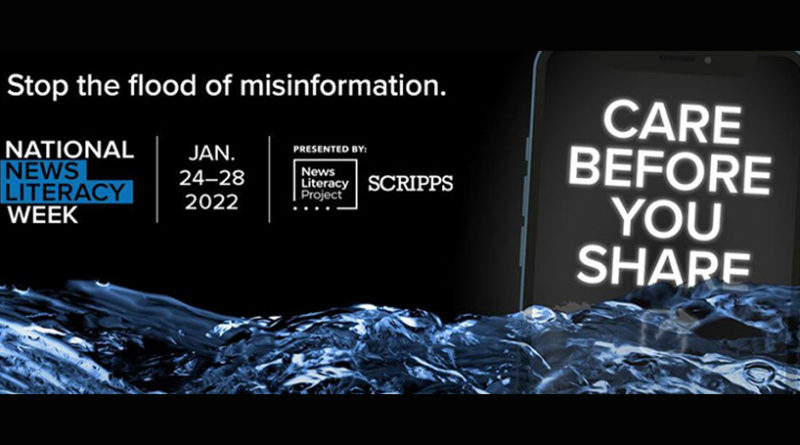Column: News Literacy Week puts spotlight on reader responsibility
We live in an era of media consolidation, and that has led to distortions within the media marketplace and—by extension—public opinion itself. The news these days tends to be pushed through a more bureaucratic, marketing-oriented, and cookie-cutter approach to information and its consumption.
The principles and practices within the media industry that we took for granted for decades have been weakened by that as well.
In the last 30 years, we’ve seen the nation’s media footprint go from around 50 different companies down to just six, and the most recent phenomenon is the dominance of powerful entities like Facebook that couple information with powerful marketing tools and algorithms that put people into feedback loops which reinforce what these companies want them to see.
That’s not always what people are looking for. This ‘technology’ effectively limits the choices made immediately available to people.
We’ve also seen how new media channels emerge and are propped up by larger media entities to try and capture and monetize a trend in public opinion. This has less to do with informing the public and more to do with trying a new business model.
All of this affects how well we are informed in the public because accuracy, credibility, and objectivity don’t seem to be as highly valued as the manufactured shock factor, innuendo, and hearsay that bounces around a lot of high-earning echo chambers these days.
Incomplete information is presented in a way that cozies up to our biases instead of our critical thinking skills, too. This undermines news literacy in general and makes it hard for people to know what’s real. As you would imagine, this also has a big impact on how people engage and understand local government.
Misinformation destroys trust and creates conflict instead of informed dialogue.
So, what can we do about all of this? It may be impossible to avoid the dominant media forces, as they pump billions of dollars per year into efforts aimed at capturing our attention, our clicks, and the money associated with everything we do on our phones, our computers, and our televisions. However, supporting local media and those working in it can help preserve the local news that we have left. These outlets still include people from our community and offer a connection that cannot be found further up the food chain.
In turn, seeking out objective, fact-based, and consistently accurate news sources will help us discern between ‘infotainment’, misinformation, and the unvarnished truth. This is crucial, for the ability to do that is a fundamental piece of civic involvement and life in a democracy.
Chris Holman is the Portage County Executive. He can be reached at 715-346-1997.


